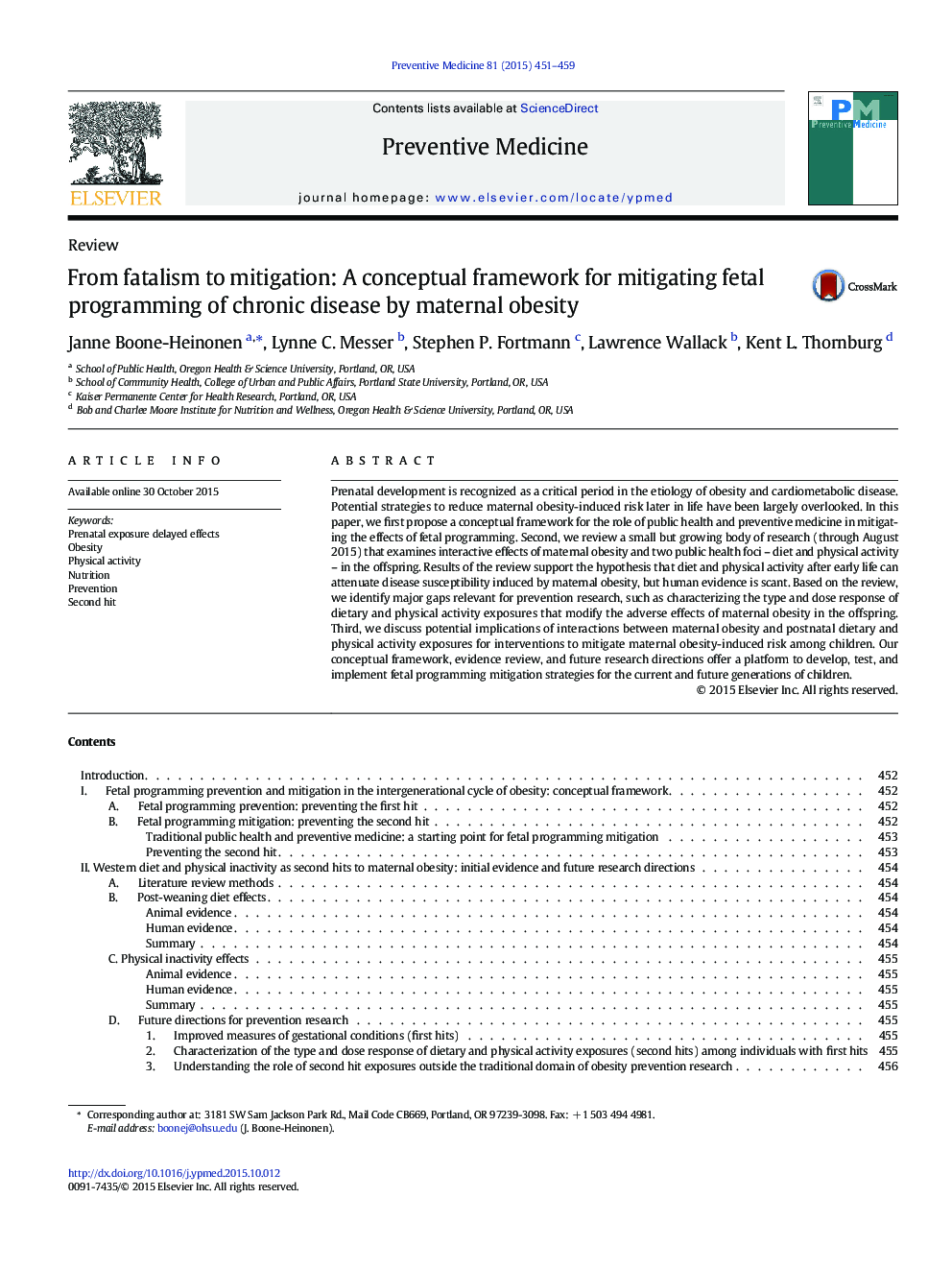| Article ID | Journal | Published Year | Pages | File Type |
|---|---|---|---|---|
| 6046381 | Preventive Medicine | 2015 | 9 Pages |
Abstract
Prenatal development is recognized as a critical period in the etiology of obesity and cardiometabolic disease. Potential strategies to reduce maternal obesity-induced risk later in life have been largely overlooked. In this paper, we first propose a conceptual framework for the role of public health and preventive medicine in mitigating the effects of fetal programming. Second, we review a small but growing body of research (through August 2015) that examines interactive effects of maternal obesity and two public health foci - diet and physical activity - in the offspring. Results of the review support the hypothesis that diet and physical activity after early life can attenuate disease susceptibility induced by maternal obesity, but human evidence is scant. Based on the review, we identify major gaps relevant for prevention research, such as characterizing the type and dose response of dietary and physical activity exposures that modify the adverse effects of maternal obesity in the offspring. Third, we discuss potential implications of interactions between maternal obesity and postnatal dietary and physical activity exposures for interventions to mitigate maternal obesity-induced risk among children. Our conceptual framework, evidence review, and future research directions offer a platform to develop, test, and implement fetal programming mitigation strategies for the current and future generations of children.
Related Topics
Health Sciences
Medicine and Dentistry
Complementary and Alternative Medicine
Authors
Janne Boone-Heinonen, Lynne C. Messer, Stephen P. Fortmann, Lawrence Wallack, Kent L. Thornburg,
